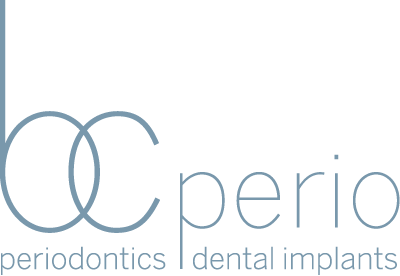Fortunately, gum disease is preventable, so you can take steps to avoid these consequences. And if you notice any signs of gum disease, don’t delay in scheduling an evaluation with a periodontist in case you need to get treatment.
How Gum Disease Develops
Gum disease occurs when oral bacteria attack the gum tissue and cause inflammation. Initially, that inflammation results in fairly mild symptoms. However, if you fail to intervene when gum disease is in its earliest stage, the inflammation advances and causes more severe issues.
Eventually, gum disease can attack the bone underneath the gum tissue as well. When this occurs, you may be at risk for tooth loss, which requires even more involved interventions.
Gum Disease Prevention
To avoid these outcomes of gum diseases, patients should work to maintain healthy gums as part of a healthy smile. This can be accomplished by minimizing oral bacteria with good basic oral hygiene practices.
- Brush your teeth twice each day, for two minutes at a time. Be sure that you’re using a soft-bristled brush that is no more than three months old. Don’t be too harsh with your technique, which can harm gum tissue.
- Floss once a day, giving special attention to your gumline.
- Use an anti-bacterial mouthwash as an additional protective measure.
- See your dentist twice a year for a thorough professional teeth cleaning.
When Gum Disease Treatment Is Necessary
Even if you’re taking steps to prevent gum disease, you should monitor your gums for symptoms of this condition. Certain symptoms warrant follow-up with a periodontist to see what kind of treatment may be needed. These symptoms include:
- Redness
- Bleeding (even if it only occurs while brushing or flossing)
- Swelling/puffiness
- Persistent bad breath
- Noticeable pockets between the gums and the teeth
Early stage gum disease, also known as gingivitis, responds well to the conservative intervention of a deep dental cleaning. This is why it’s so valuable to see a periodontist as soon as possible. Later-stage gum disease – periodontitis – requires more invasive treatments.
Want to make sure that you are doing everything possible to prevent gum disease? Call our team at BC Perio and speak to one of our knowledgeable staff members.
